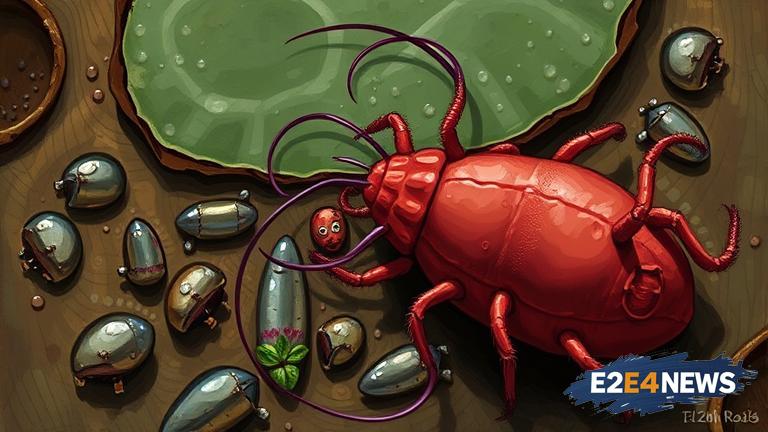A recent case of a flesh-eating parasite infection in a Maryland man has raised concerns about the spread of the New World screwworm larva, a parasitic insect that can cause severe damage to human tissue. The man, who has not been named, had traveled to El Salvador, where he is believed to have contracted the parasite. The Centers for Disease Control and Prevention (CDC) and the US Department of Health and Human Services have issued warnings about the risks of the New World screwworm larva, which is commonly found in Central America and Mexico. The parasite is typically spread through the bites of infected flies, which can lay their eggs in open wounds or cuts. Once the eggs hatch, the larvae can feed on human tissue, causing severe pain, swelling, and damage to the skin and underlying tissues. In severe cases, the infection can lead to amputation or even death. The CDC has reported several cases of New World screwworm larva infections in humans in recent years, including a case in Florida in 2016. Cattle ranchers in the southern United States have also reported cases of the parasite in their animals. The parasite is typically treated with antibiotics and surgical removal of the infected tissue. However, prevention is key, and health officials are urging travelers to take precautions when visiting areas where the parasite is common. This includes wearing protective clothing, using insect repellent, and avoiding areas with high fly activity. The Maryland man’s case is a reminder of the importance of being aware of the risks of infectious diseases when traveling abroad. The CDC and other health organizations are working to educate the public about the dangers of the New World screwworm larva and other infectious diseases. In addition to the CDC, the US Department of Health and Human Services is also involved in efforts to prevent the spread of the parasite. The department is working with state and local health officials to monitor cases of the infection and provide guidance on prevention and treatment. The New World screwworm larva is a significant concern for public health officials, as it can have serious consequences for human health. The parasite can cause severe pain, disfigurement, and disability, and can even be life-threatening in severe cases. The CDC and other health organizations are urging the public to take precautions when traveling to areas where the parasite is common, and to seek medical attention immediately if they experience any symptoms of the infection. Symptoms of the New World screwworm larva infection can include severe pain, swelling, and redness at the site of the infection, as well as fever, chills, and nausea. In severe cases, the infection can lead to amputation or even death. The CDC is working to develop new treatments and prevention strategies for the New World screwworm larva, including the use of insecticides and other control measures. The agency is also working with international partners to monitor cases of the infection and provide guidance on prevention and treatment. The Maryland man’s case is a reminder of the importance of global cooperation in preventing the spread of infectious diseases. The New World screwworm larva is a significant concern for public health officials, and efforts to prevent its spread will require a coordinated effort from health organizations around the world. The CDC and other health organizations are urging the public to take precautions when traveling to areas where the parasite is common, and to seek medical attention immediately if they experience any symptoms of the infection. By working together, we can prevent the spread of the New World screwworm larva and protect public health.
